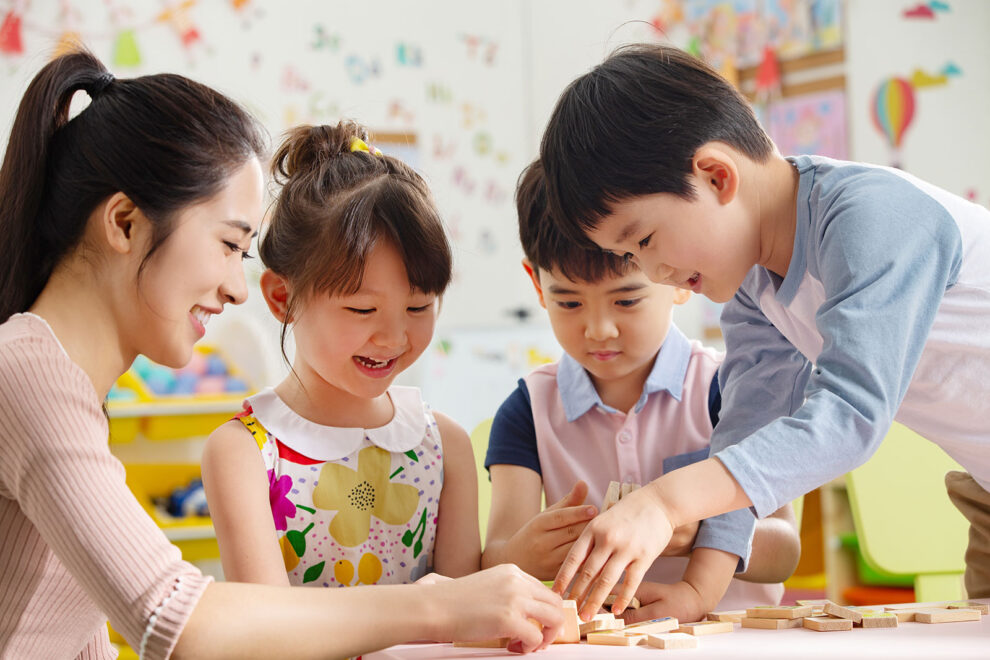In the fast-paced, education-focused society of Singapore, early learning nurseries play a crucial role in shaping the foundation of a child’s educational journey. These institutions are more than just daycare centers; they are the first stepping stones in a child’s formal learning experience. This comprehensive guide delves into the world of early learning nurseries in Singapore, exploring what they are, how they operate, lesser-known facts, the wide range of skills children can acquire, and why they are essential in today’s competitive world.
What is an Early Learning Nursery?
An early learning nursery, also known as a preschool or kindergarten in some contexts, is an educational establishment designed for young children, typically aged between 18 months to 4 years old. These nurseries focus on providing a structured yet nurturing environment where children can develop essential skills through play-based learning and guided activities.
Key characteristics of early learning nurseries include:
- Age-appropriate curriculum
- Qualified early childhood educators
- Safe and stimulating learning environments
- Focus on holistic development (cognitive, social, emotional, and physical)
- Preparation for formal schooling
How Early Learning Nurseries Work in Singapore
In Singapore, early learning nurseries are part of the larger preschool education system, which is overseen by the Early Childhood Development Agency (ECDA). The operation of these nurseries is guided by a framework that ensures quality and consistency across different providers.
Regulatory Framework
Licensing:
All early learning nurseries must be licensed by ECDA to operate legally.
Teacher Qualifications:
Educators must meet specific qualifications set by ECDA.
Curriculum Guidelines:
While nurseries have flexibility in their teaching approaches, they must adhere to the NEL (Nurturing Early Learners) framework.
Typical Schedule
- A day in a Singaporean early learning nursery might include:
- Morning circle time
- Structured learning activities (e.g., language, numeracy)
- Outdoor play and physical activities
- Arts and crafts sessions
- Nap or rest periods
- Snack and meal times
- Free play and social interaction
Assessment and Progress Tracking
- Nurseries in Singapore often use:
- Observation-based assessments
- Progress reports for parents
- Parent-teacher conferences
- Learning portfolios showcasing children’s work
Parent Involvement
- Singaporean nurseries encourage parent participation through:
- Regular communication (e.g., newsletters, apps)
- Parent volunteering opportunities
- Family events and workshops
Lesser-Known Facts About Early Learning Nurseries
While many parents are familiar with the basic concept of early learning nurseries, there are several aspects that might surprise even the most informed:
Bilingual Emphasis:
Many Singaporean nurseries offer bilingual programs, often in English and Mandarin, reflecting the nation’s linguistic diversity.
Technology Integration:
Some nurseries incorporate age-appropriate technology, such as interactive whiteboards or educational tablets, to enhance learning experiences.
Cultural Sensitivity:
Nurseries often celebrate various cultural festivals, promoting understanding and respect for Singapore’s multicultural society from an early age.
Environmental Awareness:
Many nurseries in Singapore incorporate eco-friendly practices and sustainability education into their curriculum.
Specialized Programs:
Some nurseries offer unique programs like music immersion, arts focus, or even mini-entrepreneurship for preschoolers.
Health and Nutrition Focus:
Beyond just providing meals, many nurseries in Singapore educate children about nutrition and healthy eating habits.
Community Engagement:
Some nurseries organize community service projects, teaching young children about social responsibility.
Outdoor Learning:
Despite Singapore’s urban environment, many nurseries emphasize outdoor learning experiences, including nature walks and gardening activities.
Inclusive Education:
There’s a growing trend of inclusive early learning nurseries that cater to children with diverse needs alongside typically developing peers.
Parent Education:
Many nurseries offer parenting workshops and resources, extending their educational role beyond just the children.
What Your Child Can Learn in an Early Learning Nursery
Early learning nurseries in Singapore offer a rich and diverse range of learning experiences. Here’s a glimpse into the multifaceted skills and knowledge children can acquire:
1. Language and Literacy Skills
- Early reading and writing foundations
- Phonics and letter recognition
- Storytelling and comprehension
- Bilingual development (often English and Mother Tongue)
2. Numeracy and Logical Thinking
- Basic counting and number recognition
- Simple addition and subtraction concepts
- Pattern recognition
- Spatial awareness
3. Social and Emotional Skills
- Sharing and turn-taking
- Empathy and emotional recognition
- Conflict resolution
- Self-regulation and independence
4. Physical Development
- Fine motor skills (e.g., writing, cutting, buttoning)
- Gross motor skills (e.g., running, jumping, balancing)
- Hand-eye coordination
- Health and hygiene practices
5. Creative Arts
- Drawing and painting
- Music and movement
- Dramatic play
- Cultural appreciation through arts
6. Science and Discovery
- Basic scientific concepts (e.g., weather, plants, animals)
- Observation and prediction skills
- Environmental awareness
- Simple experiments and explorations
7. Technology Literacy
- Introduction to educational technology tools
- Basic computer skills
- Digital storytelling
- Safe technology usage habits
8. Cultural and Social Studies
- Understanding of family and community roles
- Awareness of different cultures and traditions
- Basic geography and sense of place
- Civic consciousness and responsibility
9. Life Skills
- Self-help skills (e.g., dressing, eating independently)
- Basic problem-solving
- Time management (following routines)
- Personal safety awareness
10. Health and Nutrition
- Understanding of healthy food choices
- Importance of physical activity
- Basic hygiene practices
- Body awareness and self-care
The Importance of Early Learning Nurseries
The significance of early learning nurseries extends far beyond providing childcare. These institutions play a crucial role in a child’s development and future success. Here’s why they are so important:
1. Foundation for Lifelong Learning
- Instills a love for learning from an early age
- Develops critical thinking and problem-solving skills
- Builds confidence in exploring and questioning
2. Social and Emotional Development
- Provides opportunities for peer interaction
- Teaches important social skills like sharing and cooperation
- Helps children develop emotional intelligence
3. School Readiness
- Prepares children for the structure of formal schooling
- Develops essential pre-reading and pre-math skills
- Enhances listening and following instructions abilities
4. Early Intervention
- Early learning nurseries allows for early identification of learning difficulties or developmental delays
- Provides opportunities for early intervention and support
5. Cultural and Linguistic Diversity
- Exposes children to diverse cultures and languages
- Promotes tolerance and understanding from an early age
6. Parent Support and Education
- Offers resources and guidance for parents
- Creates a community of support for families
Conclusion: A Stepping Stone to Success
Early learning nurseries in Singapore are more than just childcare facilities; they are vibrant, dynamic environments where young minds are nurtured, challenged, and inspired. By providing a strong foundation in various developmental areas, these nurseries set children on a path to lifelong learning and success.
In a world where education and skills are paramount, the importance of these early years cannot be overstated. Early learning nurseries play a crucial role in shaping not just individual futures, but also in building a more educated, skilled, and harmonious society.
As parents and educators, recognizing the value of early learning nurseries and supporting their mission is crucial. By doing so, we invest not just in our children’s futures, but in the future of Singapore and the world at large.









